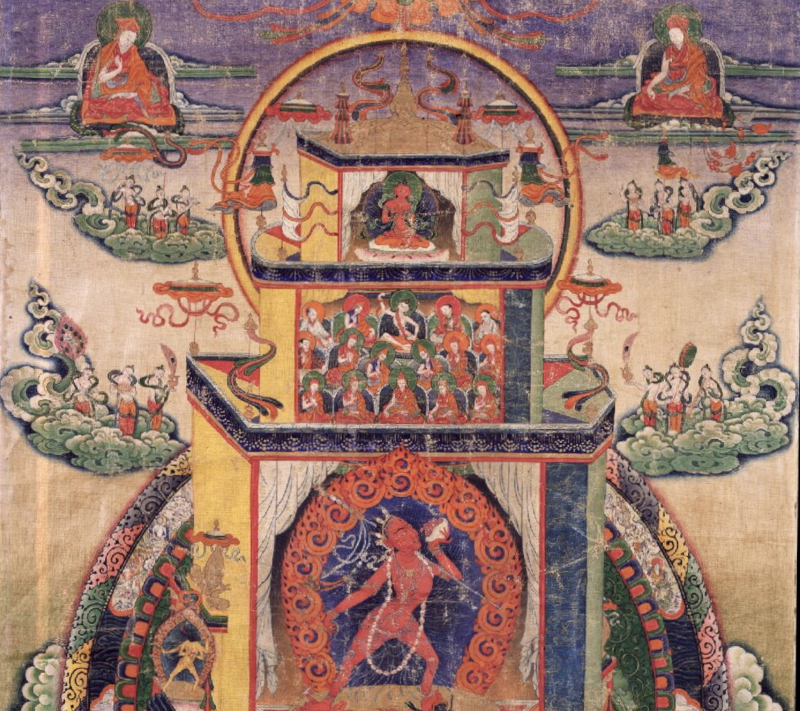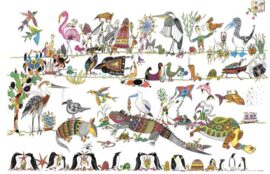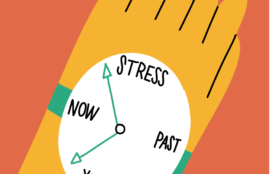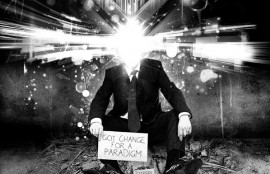Gratitude is essential for a life of mindfulness and contentment. Most of us learn this through trial and error. The mind that it always fixated on acquiring more and more neglects what it has. The greedy person lives in a perpetual state of inadequacy. But the mind that redirects this energy inward experiences something different and remarkable. In this sense, gratitude is the inverse of greed. When we admire the people around us, our safety, health and simple pleasures, we become happier people. When we have respect for life and for the meager tasks of daily life, we experience joy. When we are always thirsting for the future, we miss out on life and cause waste, suffering, and frustration.
The way to overcome daily suffering is pretty simple, but we like to pretend that life is more complicated than it is. If we make life seem like an impossible task to surmount, we feel comfortable not putting any effort in. People of all walks of life, from bums to billionaires, are always finding scapegoats and blaming external institutions, value systems and circumstances for their problems. Displacing your unhappiness onto something way bigger than yourself is a way of avoiding responsibility for your life. We blame ‘the other’ to avoid having to confront the self.
Zen monks practice gratitude in the form of highly disciplined respect for their space. When they aren’t meditating, they are maintaining their environment to keep it pristine and orderly. They clean, cook and interact with the utmost concentration, treating each task as diligently as the last. What does this do for the mind? Should we not prioritize certain tasks over others? We should of course be cognizant of what’s important and not get too lost in the moment; we aren’t monks, after all. But we can learn from Zen monks the supreme value of approaching every moment with respect and conscientiousness.
Gratitude makes us as ‘ideal’ as human beings can be. It allows us to be content with a simple life, to love people around us, and to have time to develop self-discipline and self-respect. It is a value that cannot be learned; it must be practiced to be understood. We all experience gratitude, usually during our happiest moments. The magic of gratitude, though, is that it can be consciously applied to most scenarios. When eating a meal, savor each bite. When speaking with someone, listen with your full attention. When meditating, breathe each breath with pure mind. I like to think of this like a road trip. It’s important to concentrate on the road and also to enjoy the sights rather than obsessively fantasize about the destination.
The results of simply remembering to be grateful are phenomenal. It really is so simple— you either see your life as enough, or you see it as lacking. If you see it as lacking, you will be unhappy and delusional until you learn you see it as enough. If you see it as enough, you will be happy until some sort of external factor encourages you to start being greedy again. As modern people, we are subject to countless false influences. These influences degenerate the human spirit and transform us into greedy materialistic machines. When we make the decision to be grateful, to live simply, and to love what is rather than what could be, we make the world a better place.
 Charlie Ambler is the creator of The Daily Zen and @dailyzen on Twitter. He began the site in 2008 as a way to chronicle his study of Zen and practice of meditation. He is currently working on raising enough funding to work on Daily Zen full-time and is also writing a book about Zen practice and contemporary life. Charlie live in Greenpoint, Brooklyn and enjoys playing drums, walking, and petting other peoples’ dogs. You can support his work by clicking here.
Charlie Ambler is the creator of The Daily Zen and @dailyzen on Twitter. He began the site in 2008 as a way to chronicle his study of Zen and practice of meditation. He is currently working on raising enough funding to work on Daily Zen full-time and is also writing a book about Zen practice and contemporary life. Charlie live in Greenpoint, Brooklyn and enjoys playing drums, walking, and petting other peoples’ dogs. You can support his work by clicking here.























Sorry, the comment form is closed at this time.